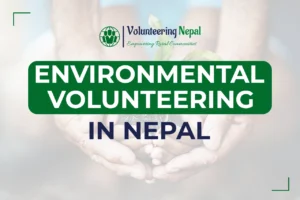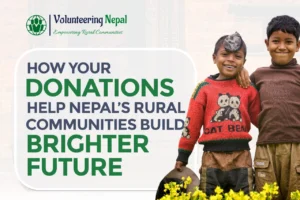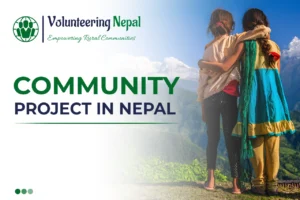
Women’s Empowerment Programs
Cultural traditions and unfair systems are making life difficult for Nepalese women everyday. Many are left out of education, don’t have control over their own income, and can’t make decisions about their lives. These problems are made worse by poverty and harmful traditions, trapping women in cycles of dependence and inequality. To change this, Volunteer Initiative Nepal (VIN) has created programs that focus on helping women get equal opportunities. By improving education, financial access, skills, and awareness, VIN is working to give women control over their lives.
Women Empowerment in Nepal
Most women in Nepal have very few opportunities because of poverty and unfair systems. Many can’t read or write, especially in rural areas. Girls are often expected to do housework instead of going to school, which keeps them from learning and building better futures. This lack of education keeps families stuck in poverty.
Women also rarely own property or have their own businesses. They earn much less than men for the same work. Violence and mistreatment are huge problems too. Almost 8 out of 10 women in Nepal have faced some form of violence. Only 1 in 4 women get a chance to study in college, and Dalit women (who belong to the lowest caste) are treated even worse. 9 out of 10 of them never get an education.
Women also have little say in leadership. Only 30% of Nepal’s parliamentary seats are held by women. These challenges show why programs like VIN’s are so important. By helping women learn, earn, and stand on their own, VIN is making a difference. Our work supports global goals like the United Nations’ Sustainable Development Goals (SDGs).
Women Empowerment Programs by VIN
VIN’s women empowerment programs are based upon four main projects. They are mentioned below.
1) Education and Life Skills Training
VIN believes learning is the key to empowerment. Its Women’s Education and Life Skills program teaches women independent living skills. Topics like health, hygiene, stress management, leadership, and time management are included.
In many villages, girls are kept out of school because of cultural beliefs or lack of money. Most Dalit women still can’t read or write, and only a few women in Nepal get higher education. To change this, VIN started literacy classes in places like Kavresthali and Devisthan. Volunteers teach women basic English, Nepali, and math skills. Many women have worked hard to learn, becoming confident and able to help their communities. VIN hopes that by 2030, most women in the areas they work in will have life skills training.
2) Financial Access Through Microcredit
Being financially independent is very important for women. But in Nepal, women often can’t get loans or credit, which stops them from starting businesses or improving their lives. Half of the poorest families in Nepal don’t have access to microcredit, and women earn only half of what men earn for the same work.
VIN’s Microcredit Cooperative Support project helps by setting up community-owned microcredit cooperatives. These cooperatives give women low-interest loans to use for small businesses, farming, or personal needs. For example, the Jitpurphedi Women’s Agricultural Cooperative program trained women in organic farming and business skills. This program helped women save money, earn interest, and invest in better futures. By 2030, VIN hopes to see all women in its target areas to have access to microcredit.
3) Entrepreneurship Training
Starting a business can give women financial independence, but many women in Nepal face challenges like lack of training, resources, and access to markets. Gender stereotypes also hold them back, with men often running businesses that are registered under women’s names.
VIN’s Entrepreneurship Development project teaches women how to start and manage their own businesses. For example, in Kavresthali, women were trained to make and sell handmade jewelry through the Creative Women’s Jewelry Project. This helped them earn money and challenge cultural norms. VIN wants to create more opportunities like this so that at least 15% of women in its focus areas can start their own businesses.
4) Women’s Trafficking Prevention
Human trafficking is a big problem in Nepal. Many women and children are tricked and taken across borders every year. Poverty, unemployment, and lack of education make women easy targets for traffickers. In rural areas, women also face verbal, emotional, and physical abuse, which makes them more vulnerable.
VIN’s Trafficking Prevention program works to stop this by teaching women about the dangers of trafficking and how to protect themselves. The program also helps women become independent so they are less at risk. VIN works to spread awareness and give women tools to stay safe from traffickers.
Looking Ahead
There are still many challenges, like cultural biases, lack of resources, and unfair treatment, but VIN keeps working to empower women and break these barriers.
Through education, financial help, and business training, VIN is helping women take charge of their lives. If people continue to support gender equality and work together, Nepal can move closer to a future where women are treated fairly and have the same opportunities as men.
Want to make a difference? Click here to learn more about VIN’s women empowerment program!



